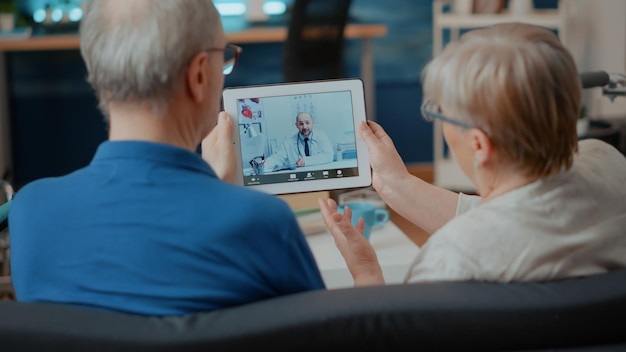
As the digital age advances, healthcare facilities around the world are experiencing a quiet revolution. This isn’t about the usual noise of hospitals, but the groundbreaking technologies transforming patient care and improving healthcare access. Let’s explore the innovations driving the healthcare industry into the future.
Telemedicine has become crucial in today’s fast-paced world, where convenience is key. Imagine living far from a medical facility and having a doctor’s appointment without leaving home. With telemedicine, you can easily schedule a consultation from your couch, receive diagnoses, or even get prescriptions, easing the load on physical facilities and ensuring quality healthcare is accessible everywhere.
Wearable health devices have grown significantly, far beyond just counting steps and tracking sleep. These advanced gadgets can now monitor heart rhythms, detect falls, or even measure glucose levels in real-time. They provide essential data for physicians, allowing timely interventions and personalized healthcare plans, while empowering patients to understand and manage their health daily.
Artificial Intelligence (AI) is becoming an invaluable assistant in healthcare, not replacing doctors, but enhancing their capabilities. AI interprets medical images and predicts patient deterioration with great accuracy. By analyzing vast amounts of data quickly, it supports informed decisions and improves patient care.
3D printing in healthcare offers limitless potential, from creating custom implants to printing skin tissue. Patients can now have prosthetics tailored to their unique anatomy, boosting comfort and functionality. The possibility of printing functional organs could revolutionize organ donation.
Blockchain technology secures patient data in the age of digital health records. Beyond cryptocurrency, blockchain’s decentralized system ensures data is tamper-proof and transparent, crucial for building trust in digital healthcare.
Virtual Reality (VR) is proving its worth beyond gaming, becoming a powerful tool in therapy. It aids stroke victims in regaining motor functions and helps treat phobias and PTSD through controlled exposure therapy, changing the landscape of both physical and psychological therapies.
For patients with chronic conditions, remote monitoring tools reduce the need for frequent hospital visits. By sending real-time health data to providers, these tools enable timely interventions, whether it’s through pacemakers transmitting heart data or smart inhalers monitoring asthma.
CRISPR gene-editing technology represents a monumental leap in healthcare, offering potential cures for genetic disorders by modifying specific DNA parts. Though still emerging and ethically complex, its potential to transform treatments is remarkable.
In summary, the healthcare industry stands on the verge of a tech-driven transformation. With innovations like telemedicine and gene editing, future healthcare promises to be more personalized and enhance patient experiences. As these technologies develop and integrate, the coming decade in healthcare promises to be unlike any we’ve seen before.









